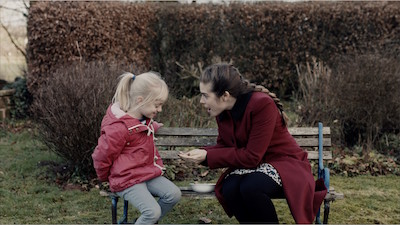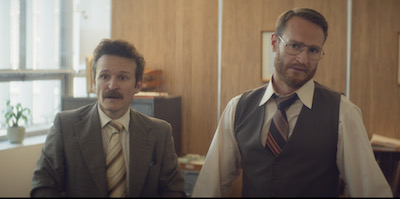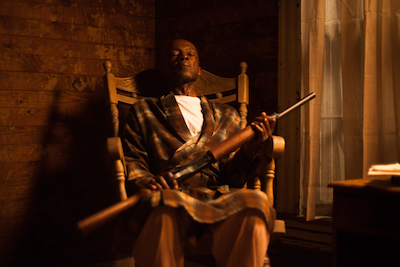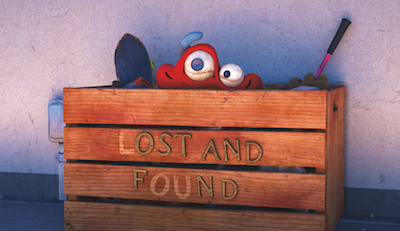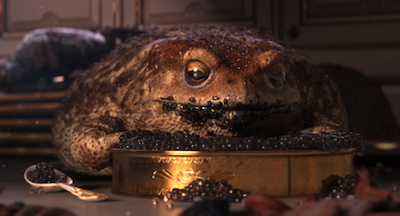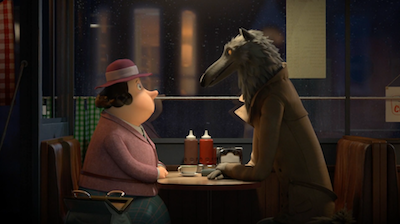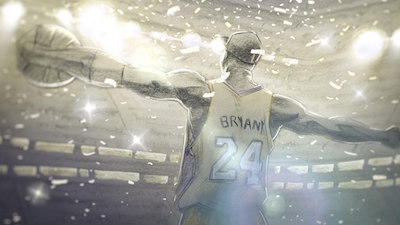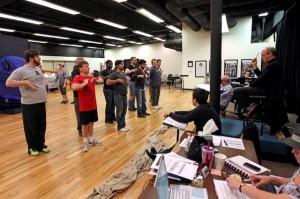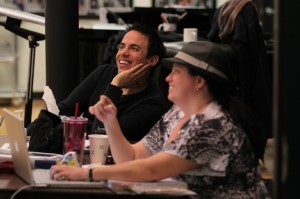by Claudia Dafrico
Contributing Writer
OSCAR NOMINATED SHORT FILMS 2018: ANIMATION & LIVE ACTION (2017); Opens Friday, February 9 at the Landmark Midtown Art Cinema
With awards season in full swing, cinema-loving Atlantans may be wondering where they can have a more personal experience with this year’s nominees. While Atlanta is now rivaling Los Angeles in terms of film production, the bulk of movie premieres and award ceremonies continue to take place in Hollywood. If you’ve already bought your Oscar party decorations and filled out your personal ballot but you’re still wanting more Academy goodness, Landmark’s Midtown Art Cinema has got you covered. Starting Friday February 9, OSCAR NOMINATED SHORT FILMS 2018: ANIMATION & LIVE ACTION will be screening there. With 10 shorts total (five live action and five animated) that range from heart-wrenching tragedies to whimsical reveries, there are sure to be some new favorites for everyone.
Many of the entries in this year’s short film categories are inspired by or direct retellings of true events. This is certainly the case with Reed Van Dyk’s Dekalb Elementary, which recounts an incident on August 20, 2013 in which an armed man holed himself in the front office of an Atlanta elementary school with violent intent. Tarra Riggs shines in her role as the secretary who has the fate of hundreds on her shoulders when she is forced to negotiate with the gunman. The film is filled with tense moments, none of which feel unrealistic or nerve-wracking for their own sake. While it is very easy to exploit real life trauma for cheap thrills, Dekalb Elementary does no such thing, and instead chooses to showcase the immense emotional capacity of the actors to convey the many nuances of such a terrifying situation.
It is not uncommon to see young children struggle with the transition of leaving their mother at home to start school for the first time. For the protagonist of The Silent Child, that transition is made even more difficult due to her deafness. When Libby’s parents hire a sign language proficient nanny, played by Rachel Shenton, to aid her in communication, the child’s difficult situation starts to become less of a burden. But while Libby’s signing skills begin to improve and the bond between the two strengthens, outside forces begin to inhibit Libby’s opportunities for growth. The Silent Child raises many questions regarding how a parent should handle the education of a deaf child, and the consequences that can arise from those decisions.
If the comedy in The Eleven o’Clock can be described in any one word, that word would be “maddening.” The film starts off innocently enough: a psychiatrist arrives at his office at the start of the work day, whereupon he finds out his regular secretary has been replaced by a temp for the day, who reminds him that his 11:00 AM client is soon to arrive. The client’s ailment? He thinks he is a psychiatrist—more specifically a psychiatrist that practices in the very same office, who also has an 11:00 appointment with a client who believes he is a psychiatrist. What follows is a “who’s on first” routine that manages to be both hilarious and unsettling. As the two men quarrel over who’s who, the audience begins to question their own identities and perceptions.
The tragic, short life of Emmett Till has been taught, or at the very least mentioned, in many schools when discussing the roots of the Civil Rights movement in America. But it is rare to have the chance to experience his story through a medium as immersive as cinema. Kevin Wilson Jr.’s My Nephew Emmett seeks to provide that immersion by following Till’s uncle, Mose, in his struggle to protect Emmett from the violent hate-mongers seeking mob justice over an altercation between Emmett and a white woman that is still disputed to this day. L.B. Williams’ portrayal of Mose is nuanced and heartbreaking, and stands out in a piece that breathe new life into a piece of history worth re-examining.
News coverage of international conflicts, specifically disputes rooted in religious and/or ideological differences, often have a tendency to rely upon the violence and cruelty occurring between the disparaging groups, as opposed to the bond that can be found between common citizens swept up in the strife. Watu Wote (Katja Benrath) illuminates the power of this bond with the story of a Christian woman’s journey through Kenya during a particularly violent period in the county’s Muslim-Christian dispute. She is initially wary of her fellow travelers (Muslims), but comes to learn that human goodness can transcend animosity. Real life acts of heroism are not accompanied by fanfare, nor do they always have a strictly “happy” ending. This is a film that celebrates these oft-neglected heroes.
Try, for a moment, to imagine a piece of media created by Pixar that lacks charm. It’s harder than you would think. Their 19th original animated short, Lou, is no exception to this rule. The film opens on an elementary school playground, where the viewer meets LOU, an anthropomorphized pile of children’s belongings that have become separated from their owners and made their way into the lost and found the bin one way or another. A schoolyard bully finds new joy in keeping the lost belongings for himself, and LOU takes it upon itself to deal out justice (in the wholesome, whimsical Pixar style, of course).
Animal lovers and those with a flair for the mysterious will get a kick out of Garden Party, Florian Babikian and Vincent Bayoux’s beautifully animated short that follows a gaggle of frogs and toads on an adventure through an elegant mansion with some cryptic secrets. There is no dialogue outside of the croaks of the amphibians, but the directors are able to create a setting so lush and compelling that it allows the audience to create their own narrative; one that can be fanciful, deadly, or even a mix of both.
The works of British author Roald Dahl are no stranger to the big screen. Revolting Rhymes, directed by Ian Lachauer and Jakob Schuh, is another entry into this particular echelon. As a modern take on classic fairytales, Revolting Rhymes brings characters like Snow White, Little Red Riding Hood, and all of their companions and foes together in one very meta story. In classic Dahl fashion, the innocence of a fairy tale is interlaced with dry wit and some fairly dark undertones, as well as some refreshingly self-sufficient heroines. This is a perfect short for the fanciful yet wry young one in your life.
 Many parents have special rituals that they share with their children. This could be something as common as a tuck-in at bedtime, or, in the case of Negative Space, it can be something less common, like packing a suitcase. Ru Kuwahata and Max Porter craft breathtaking visuals that accompany the exploration of a relationship between a father and son, all centered around the process of packing one’s suitcase. Negative Space reminds us to appreciate even the most seemingly inconsequential moments in life, and explore the depth of when we are able to share these moments with others.
Many parents have special rituals that they share with their children. This could be something as common as a tuck-in at bedtime, or, in the case of Negative Space, it can be something less common, like packing a suitcase. Ru Kuwahata and Max Porter craft breathtaking visuals that accompany the exploration of a relationship between a father and son, all centered around the process of packing one’s suitcase. Negative Space reminds us to appreciate even the most seemingly inconsequential moments in life, and explore the depth of when we are able to share these moments with others.
One does not have to be a basketball fan, or even a sports fan period, to enjoy Dear Basketball. As Kobe Bryant professes his love of the game through his expressive narration, it is clear even to those who don’t or have never kept up with basketball to understand his reverence for it. Accompanied by magnificent pencil animation, Bryant recounts his childhood dreams of becoming a famous athlete, and the years of hard work that accompanied the fulfillment of that dream. The short has brief runtime, yet manages to capture years of passion and success. As Bryant’s professional career nears its conclusion, Dear Basketball feels like the perfect bookend to a long and fulfilling relationship between a man and his passion.


